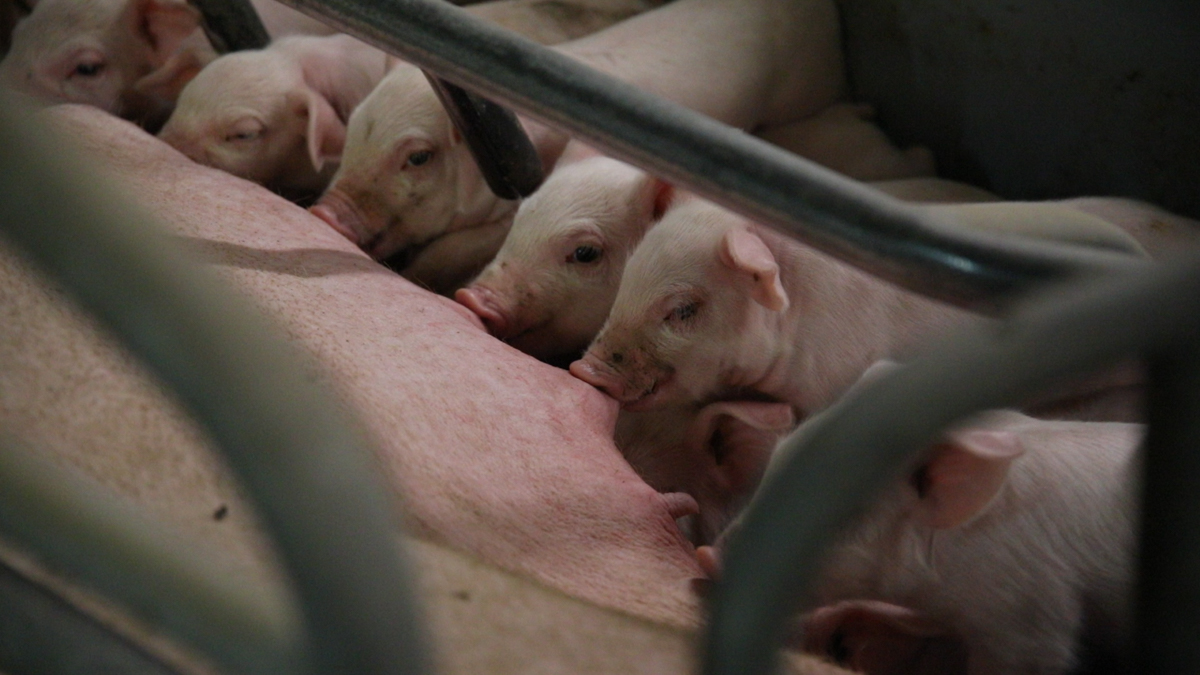A new University of Oxford study has revealed that antimicrobial overuse in livestock production can breed bacteria that are resistant to the first line of the human immune response.
The study, which was published in the scientific journal eLife today (Tuesday, April 25), indicates that farmed pigs and chickens could harbour large reservoirs of cross-resistant bacteria, capable of fuelling future epidemics.
Furthermore, The evolution of colistin resistance 1 increases bacterial resistance to host antimicrobial peptides and virulence study demonstrated that evolution of such cross-resistant bacteria is not only possible – but highly likely.
Prof. Craig MacLean of the University of Oxford’s department of biology said: “Our study clearly shows that anthropogenic use of antimicrobial peptides such as colistin can drive the accidental evolution of resistance to the innate immune system of humans and animals.
“This has major implications for the design and use of therapeutic antimicrobial peptides and suggests that resistant genes may be difficult to eradicate, even if antimicrobial peptide use in agriculture is withdrawn.”
According to researchers, cross-resistance to human antimicrobial peptides (AMPs) is likely to be widespread, given that AMPs tend to have similar cellular targets.
Pigs and chickens in agriculture are already known to act as important reservoirs of colistin-resistant E.coli, researchers warned.
Cóilín Nunan, scientific advisor to the Alliance to Save Our Antibiotics, said the study has shown that colistin resistance is “probably even more dangerous than previously thought”.
“It is astonishing that so many governments, like the UK’s, are refusing to ban colistin use in farming,” he said.
“It is also remarkable that the British government is still opposed to banning preventative mass medication of intensively farmed animals with antibiotics, even though the EU banned such use over a year ago.”
Key findings
In the study, researchers exposed E.coli carrying an MCR gene (MCR-1) to AMPs that are known to play important roles in immunity in chickens, pigs and humans.
The bacteria were also tested for their susceptibility to human serum, which contains a complex cocktail of antimicrobial compounds, and for their ability to infect wax moth larvae.
On average, the MCR-1 gene increased resistance to host AMPs by 62%, compared with bacteria lacking the gene. This increased resistance provided a strong selective advantage to the MCR-1 gene in the presence of AMPs.
Similarly, E.coli carrying MCR-1 were at least twice as resistant to being killed by human serum.
“Our results provide strong evidence that we will need to properly assess the impacts of resistance to new therapeutic AMPs on bacterial virulence before they are used to treat patients,” McLean said.
“If not, we will run the risk of accidentally arming pathogenic bacteria against our own immune system.”
McLean warned that the study clearly shows that the current use of antimicrobial peptides like colistin can drive the revolution of resistance to the innate immune system of humans and animals.
“This has major implications for the design and use of therapeutic antimicrobial peptides and suggests that resistant genes may be difficult to eradicate, even if antimicrobial peptide use in agriculture is withdrawn,” he said.

